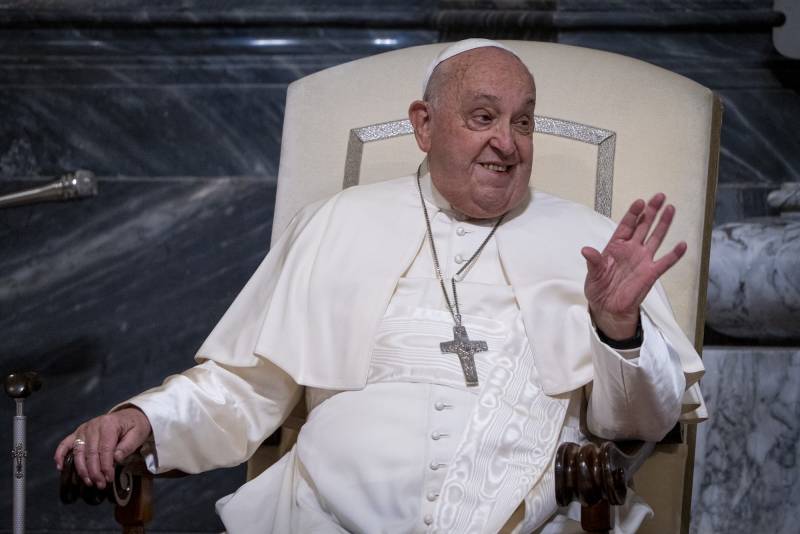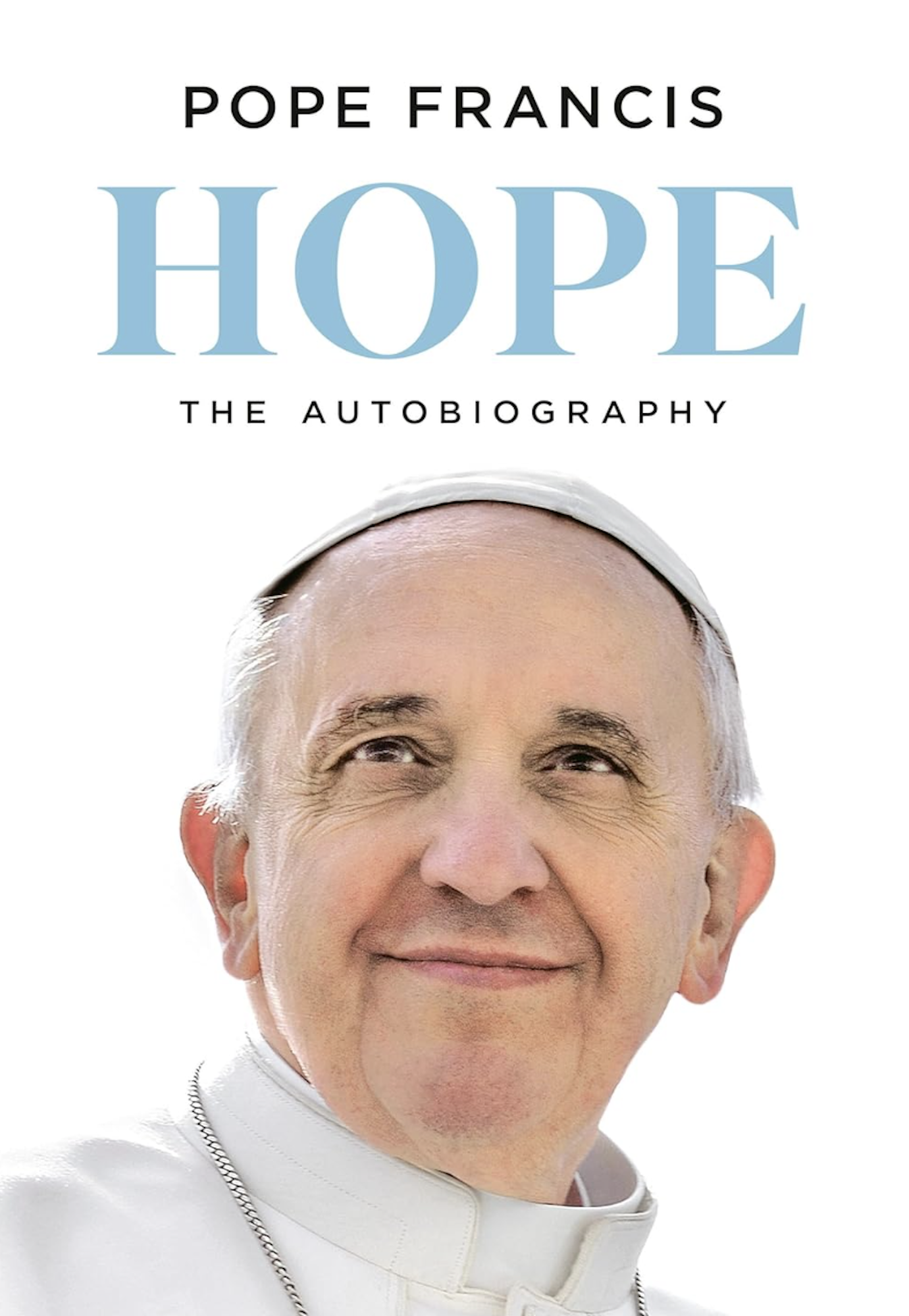The fifth ballot — the one that made him pope — actually had to be done twice. An extra ballot paper got stuck to one that a cardinal had filled out, so that when the papers were counted there were 116 rather than 115. The papers were burned without having even been opened and a new fifth ballot called.
“When my name was pronounced for the seventy-seventh time, there was a burst of applause, while the reading of the votes went on,” he writes. “I don’t know exactly how many votes there were in the end, I was no longer listening, the noise covered the voice of the scrutineer.”
One of the first things he did after the vote was to embrace Cardinal Angelo Scola, the archbishop of Milan who had been such a favorite going into the conclave that the Italian bishops conference had dummied up a press release announcing his election. “He deserved that embrace,” Francis writes.
Once in the sacristy, known as the “Room of Tears,” to be outfitted with the papal garb, Francis reveals that he had in his pocket his old episcopal ring which he used, suggesting that he had an intuition getting dressed in the morning that he would indeed be elected.
“The red shoes? No, I have orthopedic shoes. I’m rather flat-footed,” he writes of his sartorioal choices that night. Nor did he want the red velvet cape, known as a mozzetta, favored by his predecessor. “They were not for me. Two days later they told me I would have to change my trousers, wear white ones. They made me laugh. I don’t want to be an ice cream seller, I said. And I kept my own.”
Those looking for current Vatican gossip in Hope will be somewhat disappointed, as Francis only fleetingly touches on the more controversial parts of his papacy. He is far more certain of his decisions made as pope, even doubling down on blasting traditionalist Catholic priests as rigid and mentally unstable.
“This rigidity is often accompanied by elegant and costly tailoring, lace, fancy trimmings, rochets. Not a taste for tradition but clerical ostentation,” he writes. “These ways of dressing up sometimes conceal mental imbalance, emotional deviation, behavioral difficulties, a personal problem that may be exploited.”
He writes that the reform of the Vatican bureaucracy, particularly the effort to impose international accounting and budgeting standards on its finances, have been the most difficult task of his papacy and one that generated “the greatest resistance to change.”
“I have been summoned to a battle,” he writes.



